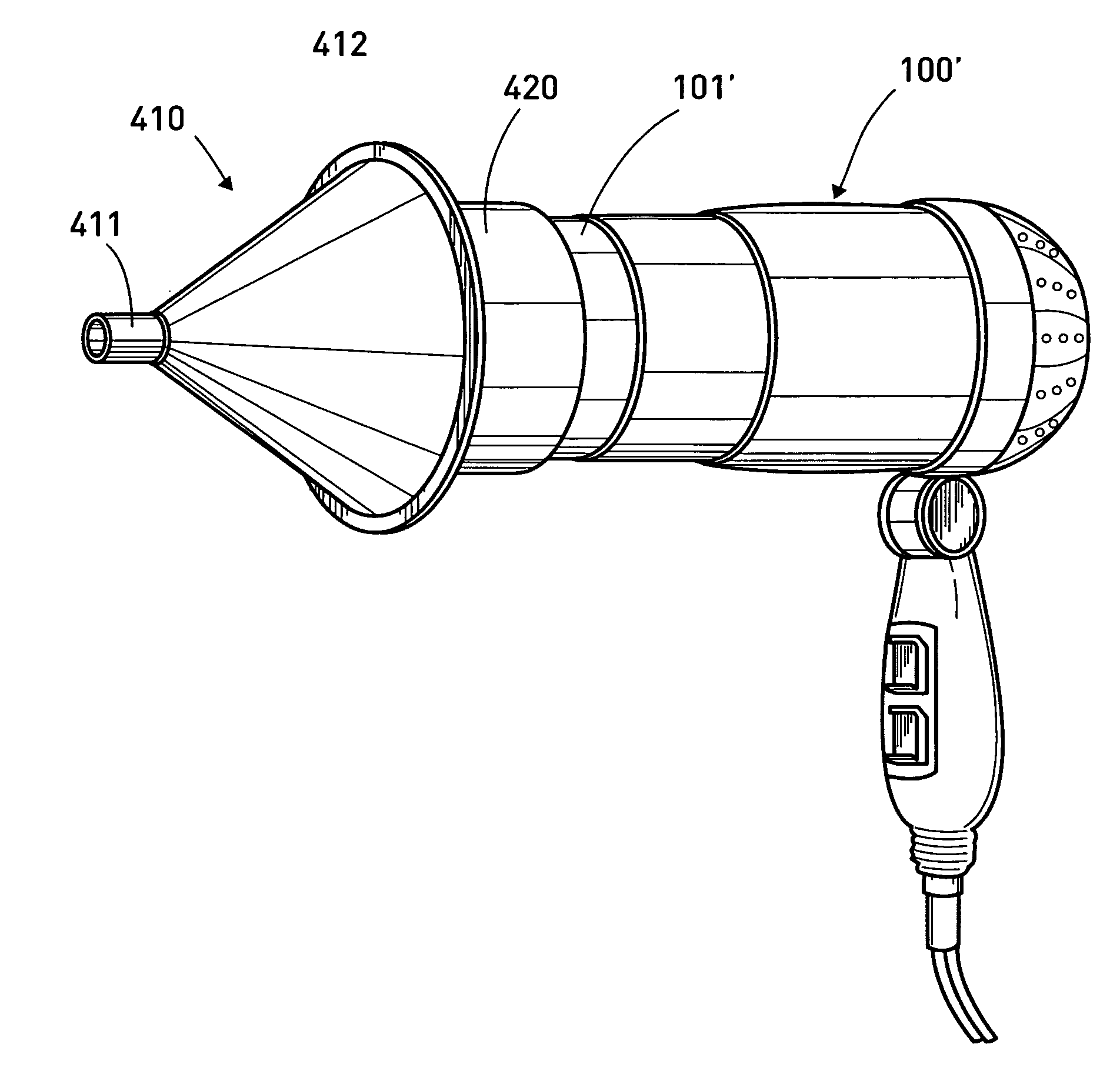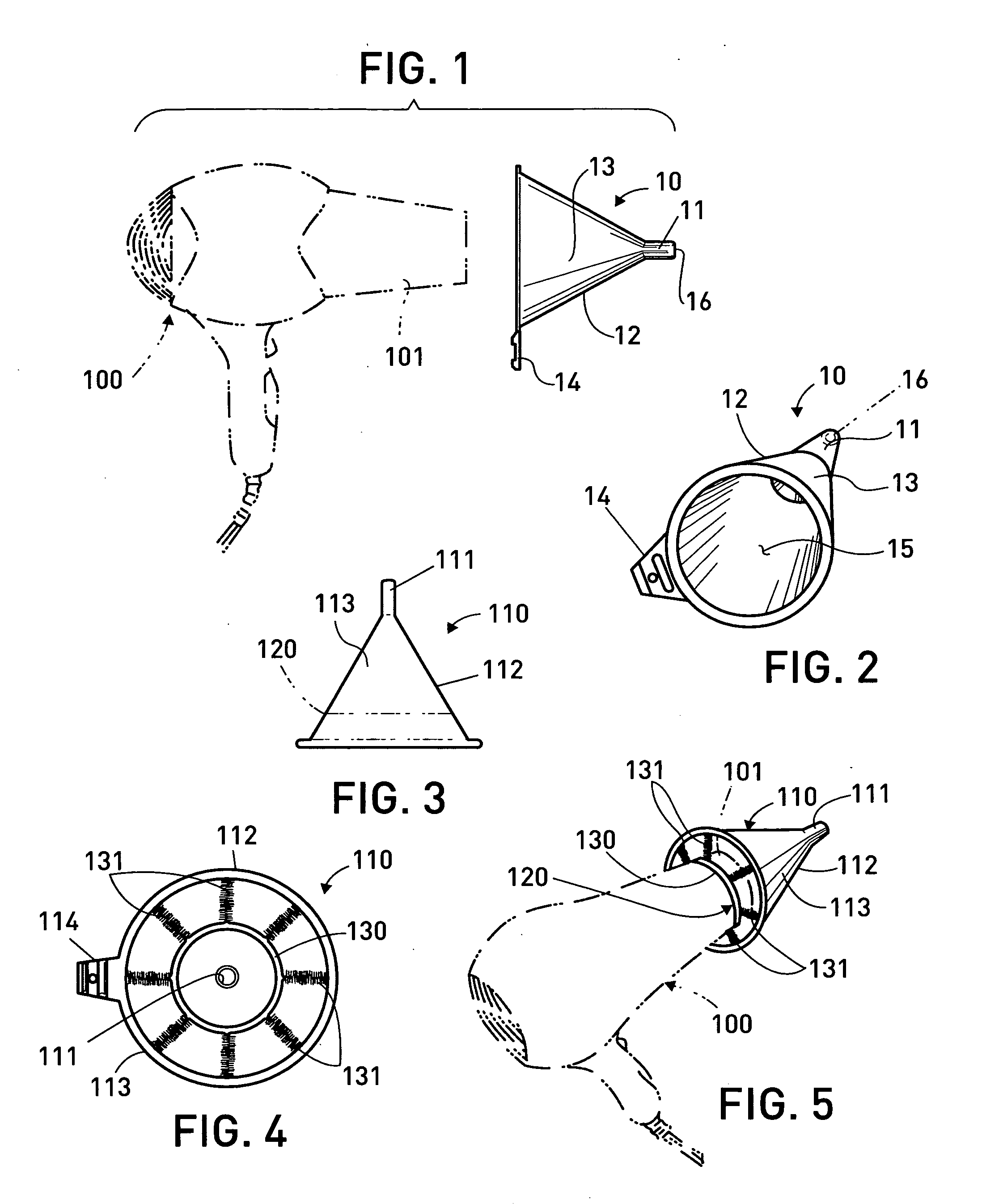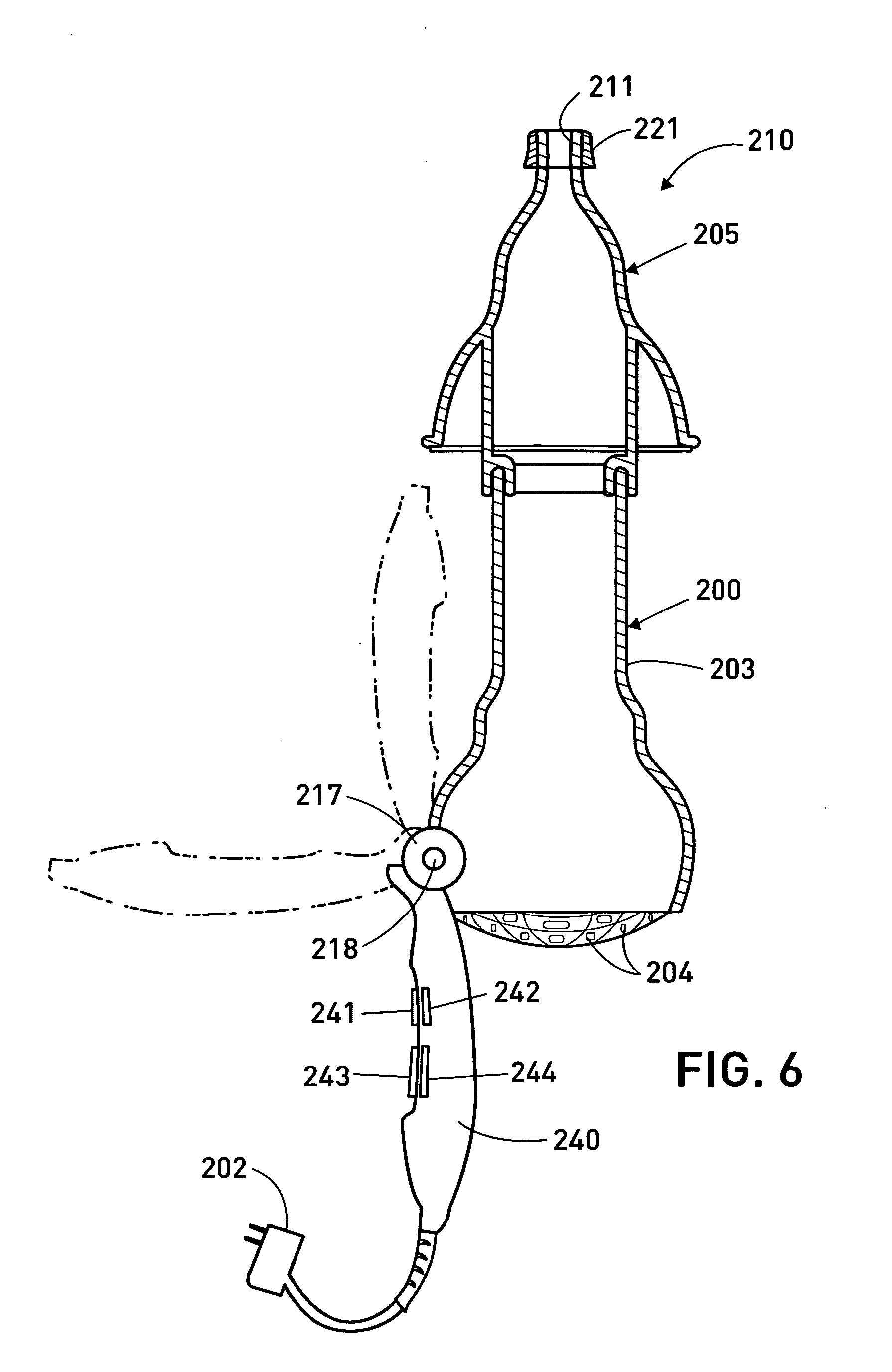Device, method and system for treatment of sinusitis
a technology for sinusitis and treatment methods, applied in the field of sinusitis treatment devices, methods and systems, can solve the problems of sinusitis condition, may last a considerable time, sinusitis may have lifelong problems with the condition, and suffer frequent reoccurrence, so as to prevent or facilitate the treatment of sinusitis conditions and/or symptoms
- Summary
- Abstract
- Description
- Claims
- Application Information
AI Technical Summary
Benefits of technology
Problems solved by technology
Method used
Image
Examples
example 1
While breathing through the mouth, a warm flow of air from a hair dryer was directed up into the nostrils, tilting the head alternately to direct the flow more concentratedly into one nostril for a few minutes, and then for a few minutes into the other nostril, adjusting the heat level and the air force velocity to tolerable levels of comfort. The challenge of enduring the air blowing on the face and having to avoid scorching the nostrils was rewarded by the individual experiencing immediate relief and abatement of sinusitis symptoms. The individual was able to sleep without coughing from the first night of this procedure.
example 2
The treatment of example 1 was followed both in the morning and in the evening for one month. These treatments with the hair dryer were sufficient to make the individual feel asymptomatic, and able to function during the day like a person without symptoms of sinusitis. The treatments also enabled the individual to reliably sleep at night.
The heat, sometimes as much as 140 degrees, was comfortable enough for several minutes and seemed to have a soothing effect on aching sinuses, although collateral air blowing on the face had become a nuisance and the nose tip and nostril edges; were becoming slightly red.
example 3
The treatment, as in Example 2 was undertaken using a delivery device for directing the heated air, a small plastic funnel obtained from a hardware store. The funnel spout (or narrow end) was inserted into each nostril at intervals, allowing the flare of the funnel to protect the individuals face from the hot air stream that may otherwise chafe the skin near the nose area. The funnel directed the hot air stream more deeply into the individual's sinus than in Examples 1 and 2. The individual was able to administer the treatment with one hand holding the funnel and the other holding the hair dryer. This enabled the individual to control the degree of heat and the force level of the air, thereby sustaining longer treatment sequences in each nostril. This procedure was performed for approximately twenty minutes each morning and evening, alternating nostrils at three to four minute intervals, and resulted in great relief of the sinusitis symptoms. The individual was able, for another mon...
PUM
 Login to View More
Login to View More Abstract
Description
Claims
Application Information
 Login to View More
Login to View More - R&D
- Intellectual Property
- Life Sciences
- Materials
- Tech Scout
- Unparalleled Data Quality
- Higher Quality Content
- 60% Fewer Hallucinations
Browse by: Latest US Patents, China's latest patents, Technical Efficacy Thesaurus, Application Domain, Technology Topic, Popular Technical Reports.
© 2025 PatSnap. All rights reserved.Legal|Privacy policy|Modern Slavery Act Transparency Statement|Sitemap|About US| Contact US: help@patsnap.com



